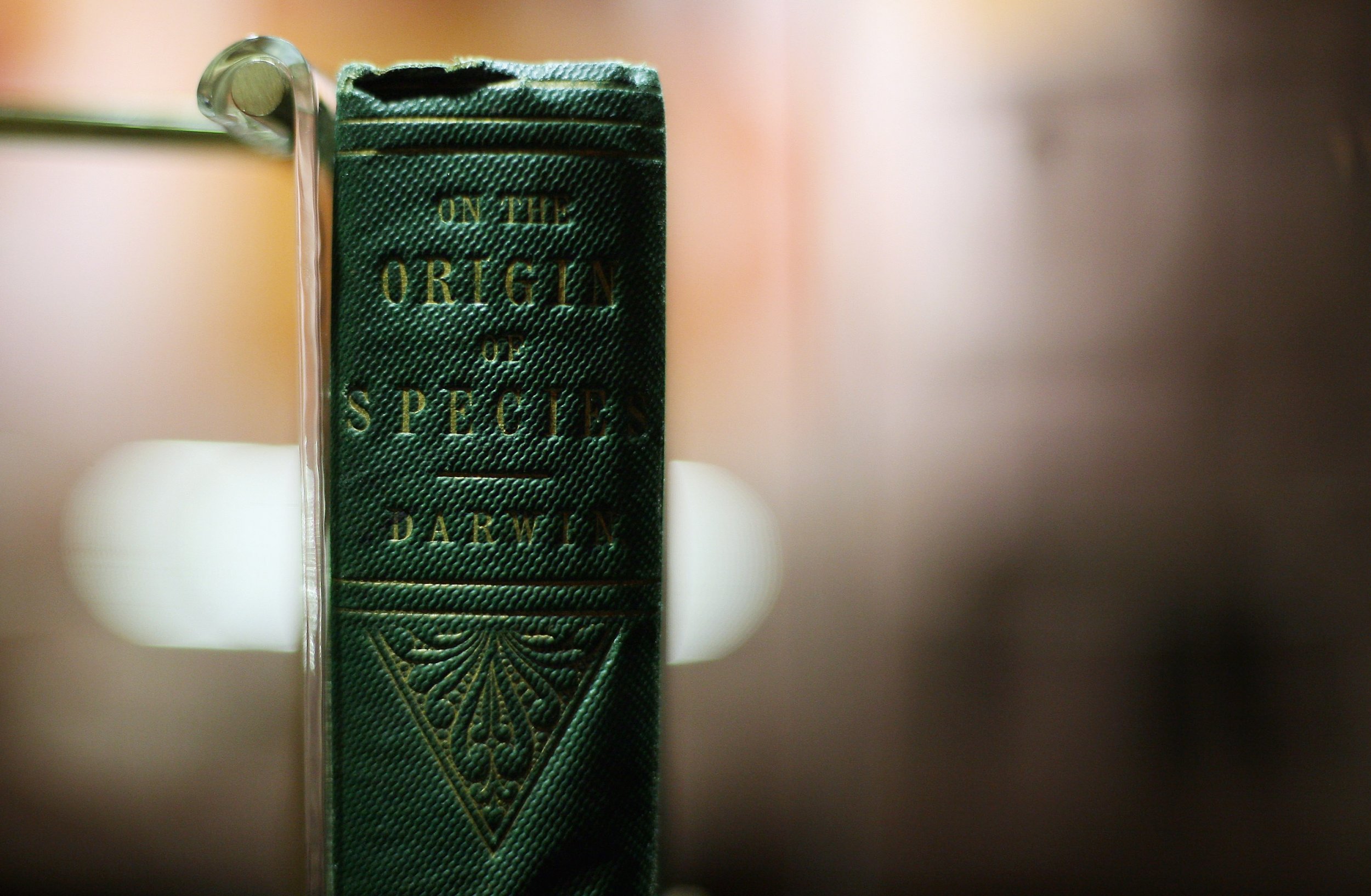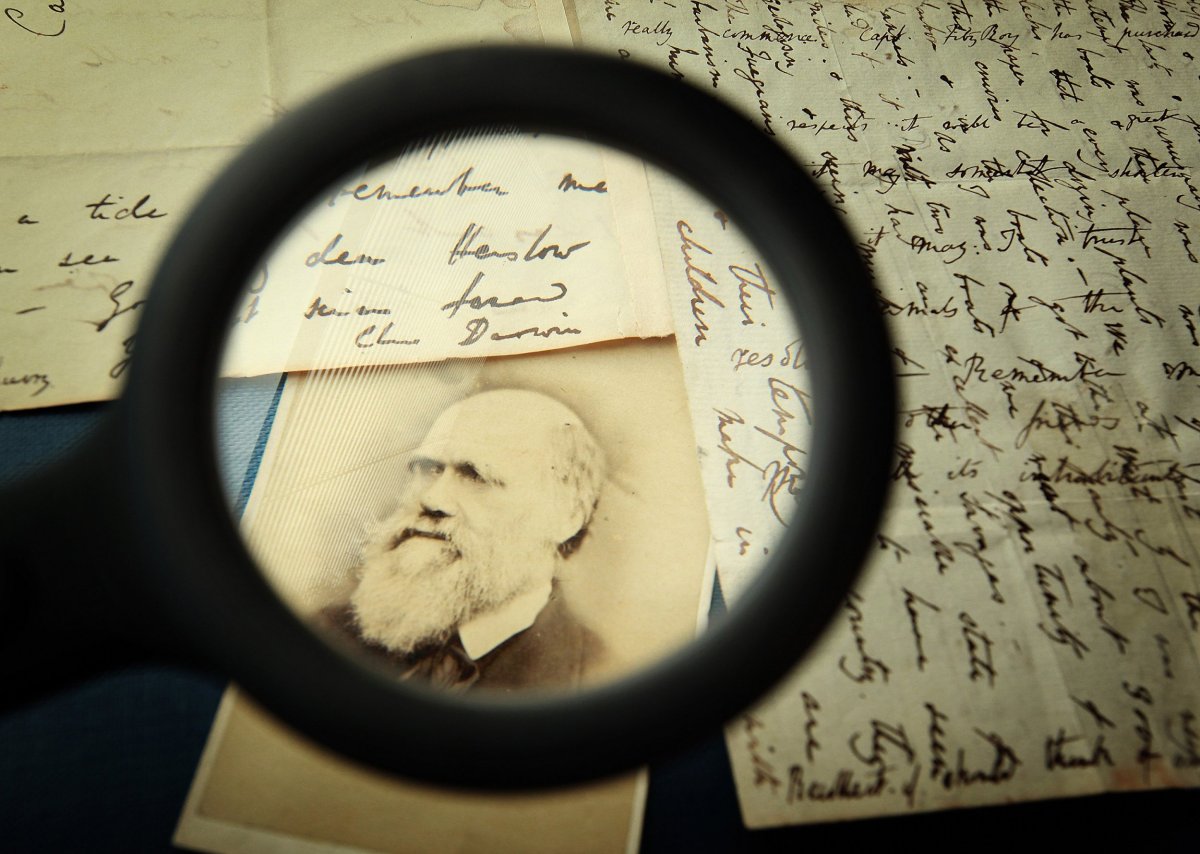
Charles Darwin—the scientist renowned for his work on the theory of natural selection—detailed his life through thousands of letters over the course of his life. One of those letters details Darwin's reconciliation between the belief of an all-creating God and the naturalist's theory of evolution—and it was sold for $125,000 Tuesday at a New York City auction. That was over twice the expected price.
#AuctionUpdate Charles Darwin's letter to James Grant - one of only two letters to ever come to market treating Darwin’s struggle with religion - soars to $125,000, over 2x the high estimate #SothebysBooks pic.twitter.com/CkLuTtFNYW
— Sotheby's (@Sothebys) December 12, 2017
In the three-page letter, Darwin concludes that squaring religion and science is "insoluble," reported Business Insider. The letter was a response to a reader's question about Darwin's 1859 landmark publication, On the Origin of Species. The reader wanted Darwin to explain "in two or three words" whether his theory "destroys the evidence of the existence of a God looked at through nature's phenomena."
The reader, James Grant, made the request in 1878—nearly two decades after On the Origin of Species was first published. Darwin, who was 69, responded, refusing to put science and religion at odds with each other. He argued that the strongest evidence of God's existence is the "intuition" that people feel that "there must have been an intelligent beginner of the Universe," but also wrote: "then comes the doubt and difficulty whether such intuitions are trustworthy."

Darwin doesn't make clear whether he himself believes in God. He noted that answering the question in full would require an essay, and "for this I have not strength, being much out of health." Darwin died four years later in his home in England and was buried a few days later in Westminster Abbey, according to the University of Cambridge's Darwin Correspondence Project.
Darwin's religious beliefs were perpetually questioned, as he was assumed to be an atheist after he published On the Origin of Species. He and his wife, Emma, discussed Christianity openly, until the death of their eldest daughter at 10 years old. After their daughter's death, Darwin's wife became more religious and Darwin avoided speaking about religion out of love for her, per Sotheby's description of Darwin and background on the letter. Letters about Darwin's thoughts on the implications on the theory of natural selection for religion are "exceptionally rare," and it is believed to be one of two to have ever been auctioned.
Sotheby's, where the letter was sold, has been auctioning artifacts and works of art since 1744 to collectors, and today has 80 locations in 40 countries. Another 70 science and technology items were up for grabs at Sotheby's, including the first edition of René Descartes' Discourse on the Method, which coined the phrase "I think therefore I am." Other items for sale include the 1954 Nobel Prize medal awarded to Frederick C. Robbins for his work leading to the development of the polio vaccine. Letters from Albert Einstein are also on offer, including one called "A Freudian Analysis And Quitting Smoking," in which he takes a humorous approach to the man who advised him to quit smoking.
The full text of Darwin's letter on his doubts of God's existence is as follows:
March 11, 1878. Private.
Dear Sir,
I should have been very glad to have aided you in any degree if it had been in my power. But to answer your question would require an essay, and for this I have not strength, being much out of health. Nor, indeed, could I have answered it distinctly and satisfactorily with any amount of strength. The strongest argument for the existence of God, as it seems to me, is the instinct or intuition which we all (as I suppose) feel that there must have been an intelligent beginner of the Universe; but then comes the doubt and difficulty whether such intuitions are trustworthy.
I have touched on one point of difficulty in the two last pages of my "Variation of Animals and Plants under Domestication," but I am forced to leave the problem insoluble.
No man who does his duty has anything to fear, and may hope for whatever he earnestly desires.
Dear Sir, yours faithfully, Ch. Darwin.
Uncommon Knowledge
Newsweek is committed to challenging conventional wisdom and finding connections in the search for common ground.
Newsweek is committed to challenging conventional wisdom and finding connections in the search for common ground.
About the writer
Sydney Pereira is a science writer, focusing on the environment and climate. You can reach her at s.pereira@newsweekgroup.com.
To read how Newsweek uses AI as a newsroom tool, Click here.








